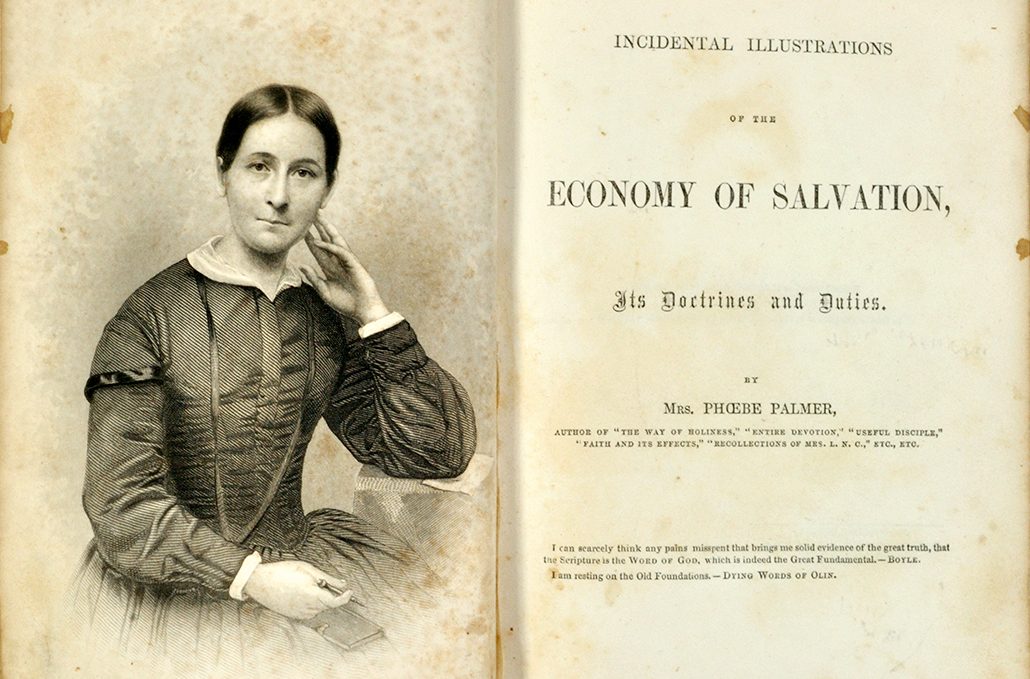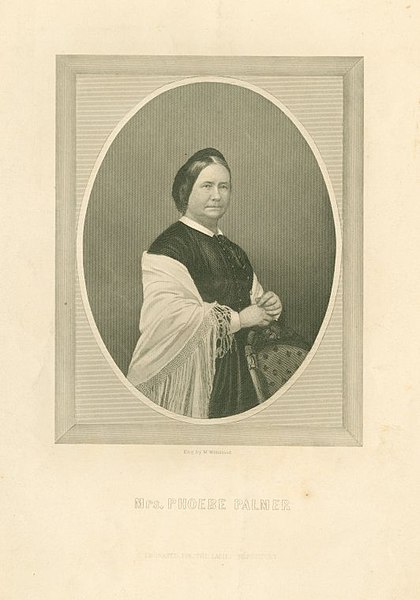Phoebe Palmer and the Day of Days by Ryan Akers

A while back, a well-known pastor made remarks about a female pastor that were distasteful and offensive. While respecting the pastor’s different viewpoint knowing full well that not all followers of Jesus agree in all areas of doctrine, I was disappointed with how the view was expressed regarding women as pastors. I have three daughters and I want them to know that God loves them, wants a relationship with them, and will empower them to do amazing things when they fully surrender their lives to God, just as God will use men when they do the same. For me, this includes the belief that God calls women to be fully ordained pastors. (This reflection is not meant to give a verse-by-verse biblical defense of women in ministry. If you would like more information on that, I encourage you to click HERE.)

Instead, I’m highlighting a female historical figure, one I have discussed with my oldest daughter: a woman named Phoebe Palmer, who was a prominent female pastor at a time when women were not allowed to vote. We discussed Mrs. Palmer after my daughter showed a desire to experience mission work and went on her first international mission trip. She just so happened to go with a group from a denomination that does not support female ministers. I was troubled when she messaged me and said, “I have already been told several times that God would never call me to be a pastor. How could I be a missionary if God doesn’t let me preach?” Then, after she heard the comments by the pastor I mentioned above, she asked me again about being a woman and what freedom she will have to preach and teach.
If you do not know anything about Phoebe Palmer, I encourage you to discover more on your own. She was born into a strict New York Methodist home in 1807. She eventually married a respected physician named Walter Palmer. During the first ten years of their marriage, they experienced the devastating loss of three young children, the third of whom died tragically when gauze curtains near the cradle accidentally caught fire. (1)
Rather than this experience causing her to turn away from God, eventually, she came to completely entrust her life to God. Palmer spent many years as a private Bible teacher, but she began to feel a longing for a deeper experience of faith. On July 26, 1837, God filled her with a special sense of the Holy Spirit that she would call “the day of days” for the rest of her life. (2)
Because Palmer lived in a time when it was not common for women to preach, she was hesitant at first to share her experience with men until a Congregational minister named Thomas Upham received the fullness of the Holy Spirit under her guidance. After that, she chose to set aside the social convention of the day and spoke to anyone who would listen. (3) Palmer spent the rest of her life as a writer, preacher, teacher of holiness, and social justice warrior. It is estimated that her influence led to the salvation of at least 25,000 people and helped thousands more learn how to live out sanctified lives. In A Global History of Christians, Paul Spickard and Kevin Cragg say of Palmer, “She was more than a preacher. She exemplified the nineteenth-century Protestant synthesis of evangelism and good works. She was the moving force behind innumerable urban social service projects. The most widely known was the Five Points Mission in New York City, which provided housing, education, and religious instruction for poor families.” (4)
Her ministry influenced the perception of women in ministry. “By the end of the 1850’s, Palmer had reached the high point of her preaching career, as both men and women viewed her as a leader. She not only brought the sexes together in worship, she also advanced the role of female preachers. She had become a prominent religious figure at a time when very few women rose to positions of power in America. Other women involved in leadership roles performed their services in their homes. Palmer was one of the few who took her message on the road and in the process, became the recognized spokesperson for the Holiness movement.” (5)
The story of Phoebe Palmer has given my daughter faith and boldness to believe that if God could empower Mrs. Palmer in such a powerful way, God can empower her as well. Additionally, Mrs. Palmer’s story shows men and women alike that whatever God calls us to do, we are to humbly but boldly obey, regardless of the social conventions of the day. I told my daughter, “How sad it would have been if Mrs. Palmer chose to stay quiet in fear of the men who would speak against her. Her ministry would not have eternally influenced thousands of people. How sad it will be if God calls you to preach, and you stay quiet. If God calls you to speak, then speak, and trust God to give you the courage to stand firm no matter what.”
1. “Phoebe Worrall Palmer,” Encyclopedia, 2019. https://www.encyclopedia.com/people/history/historians-miscellaneous-biographies/phoebe-palmer
2. Mark A. Noll, A History of Christianity in the United States and Canada (Grand Rapids: Eerdmans, 1992), 182-183.
3. Paul R. Spickard & Kevin M. Cragg, A Global History of Christians (Grand Rapids: Baker, 1994), 290.
4. Spickard and Cragg, A Global History of Christians, 290.
5. “Phoebe Worrall Palmer,” Encyclopedia, 2019.
Featured image from a volume contained in Southern Methodist University Bridwell Library Special Collections and Archives.